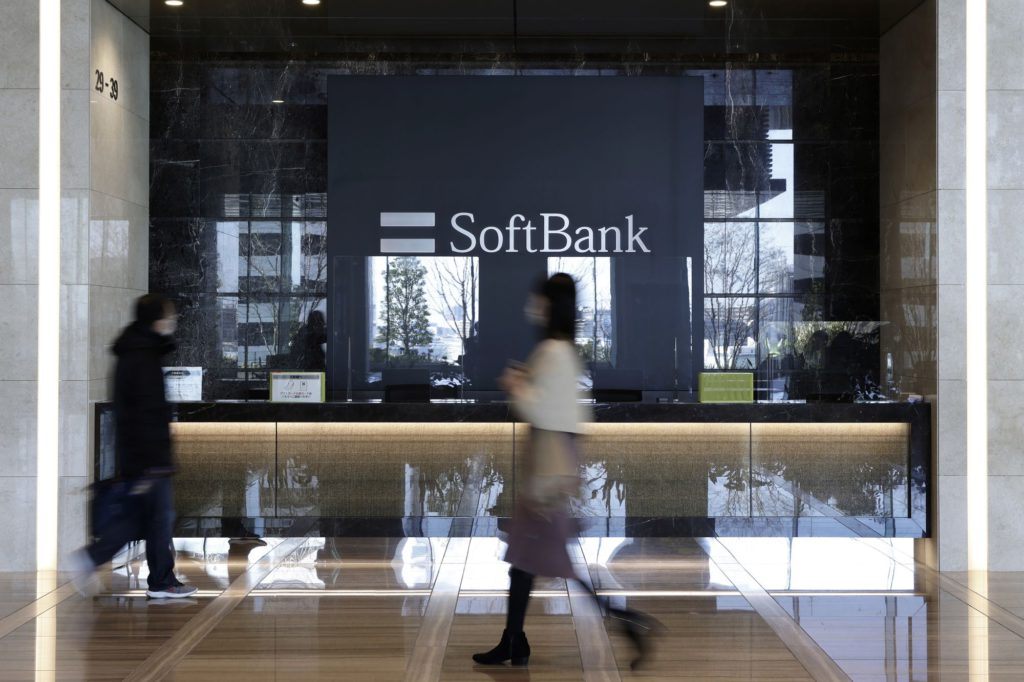(Bloomberg) — SoftBank Group Corp.-backed Light is struggling to raise funds after the world’s largest tech investor balked at putting more money into the startup, people familiar with the matter said.
SoftBank owns about 30% of Light through its first Vision Fund, which led an injection of $121 million into the advanced camera developer in 2018. SoftBank’s continued support is critical for the cash-strapped startup, which had been spending millions of dollars to expand into self-driving tech at SoftBank’s urging.
Hurt by plunging tech valuations, SoftBank is walking away from some of its loss-making portfolio firms to comply with stricter investment criteria, said the people, who asked not to be identified because the matter was not public. Many of the two Vision Funds’ portolio of 300-plus companies are loss-making.
The Japanese investment firm offered to contribute money if Light could find another investor to lead the next fundraising round, one of the people said. But with its biggest backer offering only a token amount, other investors were wary about stepping in, the person said. The Redwood City, California-based startup has hired a consulting firm to explore options, including winding down operations.
“Their purse strings are tight as they have ever been,” the person said.
A Vision Fund spokesman and Light Chief Executive Officer Dave Grannan declined to comment.
The adoption of prudence at SoftBank’s Vision Fund — which rewrote the rules of venture capital by deploying billions of dollars from the sovereign wealth funds of Saudi Arabia and Abu Dhabi into startups — is an about-face from its past freewheeling largess.
For years, SoftBank’s founder and Chief Executive Officer Masayoshi Son persuaded startup founders to accept Vision Fund money by encouraging them to think bigger and promising continued support to help them expand. He would often invest more money than founders were looking for if they would try to accelerate growth.
Before approving the investment in Light, the billionaire made clear to Grannan that his interest was predicated on the startup’s ability to adapt its depth-sensing imaging technology for self-driving cars — something Light’s founders never considered before.
Autonomous driving “is where he saw the value of the technology,” Grannan said in an interview with Bloomberg in 2018. “Masa was convinced this could be a disruptive play.”
After the initial investment, the Vision Fund introduced Light to other portfolio companies in automotive tech, including self-driving startup Cruise LLC and ride-hailing firms Uber Technologies Inc. and Grab Holdings. To meet Son’s demands, Light eliminated its original smartphone-camera tech team and laid off about half of its employees to stem losses from the drastic pivot.
Like many other self-driving startups, Light struggled to win quick contracts in an industry with long lead times to commercialization.
In the early years after the first Vision Fund’s launch in 2017, SoftBank lifted the valuations of startups such as WeWork and Uber by billions of dollars, adhering to a minimum investment threshold of $100 million per deal.
But while SoftBank’s big bets on long-term growth won over hundreds of entrepreneurs, it exposed SoftBank to immense volatility in tech shares and mounting loans, even as its war chest of new share sales threaten to dry up.
Didi’s Fate in Limbo As Officials Object to Proposed Penalty
The company next month may report its biggest-ever quarterly loss on the plunging value of its most valuable holdings, including South Korea’s Coupang Inc. and China’s Didi Global Inc., estimated Kirk Boodry, an analyst at Redex Research.
SoftBank’s investment in Light is now less than 0.1% of the Vision Fund’s total assets in dollar terms, according to another person familiar with the talks between the two companies. Over the years, self-driving technology has become a lower priority for the Vision Fund, which last month sold its stake in Cruise.
Son said during an earnings call in February that the Vision Fund would continue to invest, but at a slower rate, given privately-held firms’ lofty valuations amid a rout on publicly-traded companies’ share prices.
“Venture capital firms besides us are renegotiating terms with companies that are fundraising,” he said. “We are looking at the whole picture, while operating within the bounds of cash on hand.”
More stories like this are available on bloomberg.com
©2022 Bloomberg L.P.











